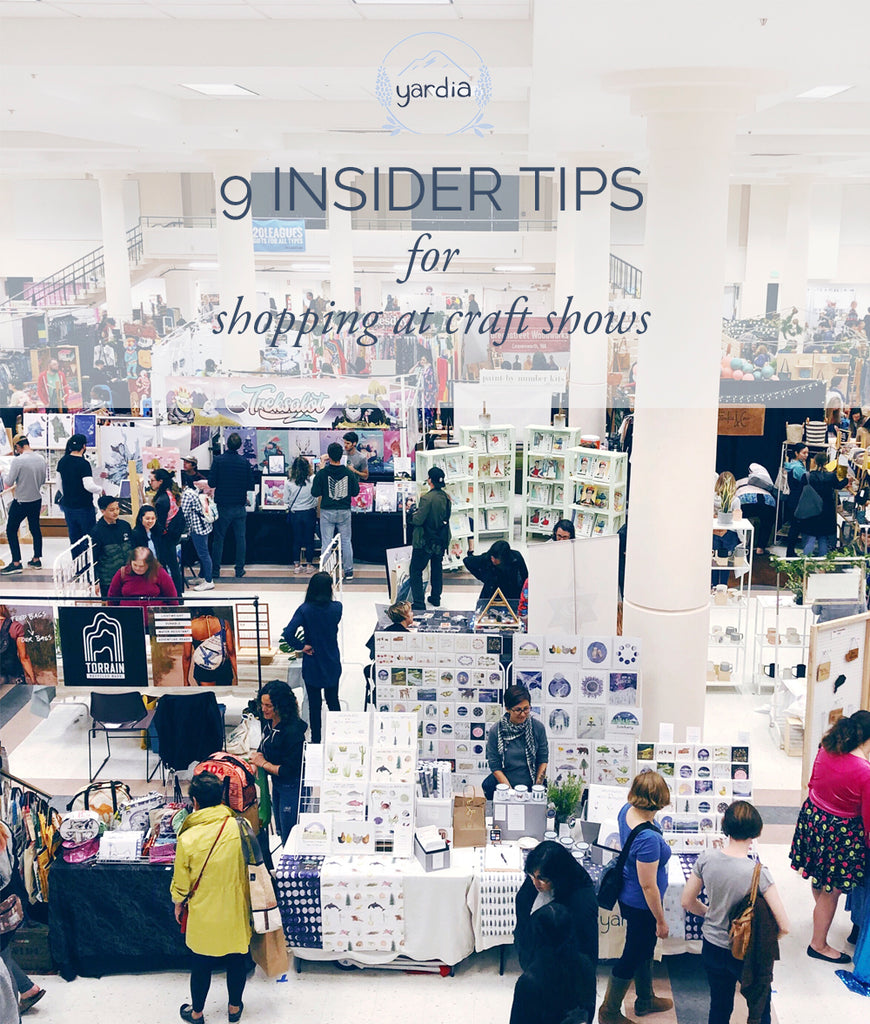
1. Preview the vendors on the market's website and plan your shopping. This can help to come up with a game plan and let you follow the artists on Instagram or check out their websites.
2. Create a shopping list. Some of the most organized shoppers I've met have come prepared with a list of people they need to purchase gifts for, and occasionally with a list of vendors to visit. Feel free to put yourself on the list too, for permission to treat yourself!
3. Bring a reusable shopping bag (or two). Save yourself the hassle of single-use shopping bags and have a sturdy option on hand. This way, you can avoid having a bunch of smaller bags from different vendors, and free up your hands from carrying a stack of products that don't fit as well into regular handle bags, like art prints. Some vendors won't have disposable bags available, and some cities discourage single-use plastic bags as well.
4. For a slower pace, attend the show in the afternoon. You'll find an easier, more relaxed crowd and faster credit card processing when you shop later in the day, especially a couple hours before closing time. Crowds will be lighter, and you'll be able to browse with ease.
5. Don't be afraid to chat with the vendor about their process or inspiration. We love talking about our art because we're proud of what we've made and the businesses we've built! One caveat to this is that asking specifics about a maker's manufacturing sources or exact process and materials is a bit of a don't since it will give the impression that you're seeking information on how to make your own version instead of supporting the artist's work with a purchase.
6. Expect to pay sales tax on your purchase. Occasionally some makers will include sales tax in the listed price of their products, but this is a fairly difficult process to calculate. Small maker businesses are required to charge sales tax in states that have tax, so expect to be charged for it the same as any other retail store.
7. Expect to pay full price and don't haggle. You can think of a craft show as a pop-up artisan retail shop, not a garage sale or a discount store. Support your local makers by honoring the value of their products!
8. Bring both a credit card and cash. Almost all vendors accept credit cards these days, but some venues have limited wifi or cell service, so processing cards can occasionally be slow (especially in Hangar 30 at Magnuson Park, if you're in Seattle). It's great to have a backup for those times when credit card processing is glacially slow. Feel free to ask vendors if they have a preference for cash or credit, especially if you have exact change available.
9. Bring a friend! Craft markets are way more fun with a friend. As a vendor, I always enjoy my conversations with friends who are enjoying their time and asking questions about my products. Plus, it's great to have someone to consult about gifts as you're shopping.